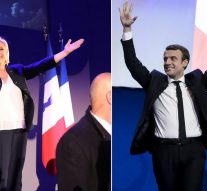
A great absent in the French elections: foreign policy
External Relations 8 May 2017Surprisingly, foreign policy is not a topic of discussion during this period of electoral campaign in France.
This is unusual in French politics and today it shows the real interests of the French leadership, mostly focused on domestic issues. On the other hand, foreign policy is relevant actually, for two reasons. Firstly, foreign policy is one of the deepest cleavage between the two candidates, Mr Macron (leader of the EnMarche! movement) and Mme Le Pen (leader of the National Front, the far-right party); secondly, the rest of the world continues to pay attention, often with considerable doubt, to the French foreign policy, as it is a major element in shaping the new global agenda in the aftermath of the Presidential election.
The historic division between Gauche and Droite falls short on foreign policy issues as well, reframing the related political debate among parties. In particular, foreign policy represented the most dividing issue during the first round of consultations between the socialist Benoît Hamon and the “radical” Jean-Luc Mélenchon. Thus Mr Mélenchon showed to stand on similar political position with the far-right leader Marine Le Pen – even if differences between their approaches and programmes were significant.
On the contrary, Benoît Hamon, Emmanuel Macron and François Fillon have similar opinions as for relations with Putin and the situation in Syria.
On May the 7th, the final contenders Mr. Macron and M.me Le Pen will defer to the popular vote the excruciating choice between two approaches that, as far as the EU is concerned, are greatly at odds. In facts, the new French administration will shape the future of the EU, which for ages has been relying on the relations between France and Germany. If Macron firmly believes in an understanding between the two countries, M.me Le Pen addresses the German Chancellor Merkel as the symbol of this “sinking” European Union.
Monsieur Macron is betting on an agreement concerning structural reforms in France in exchange for the German endorsement in deepening reforms in Europe. This is the main reason why the eventual victory of Macron is widely considered as the start button to make Europe continue to run.
As far as relations with Russia are concerned, there is the same polarization among candidates. Marine Le Pen clarified her closeness to President Putin, during a meeting held on 24th March. Marine Le Pen had the opportunity to express her endorsement to the Russian initiatives in Crimea and Syria, while carefully avoiding all those other issues that would upset – whether not harm – the Russian President, such as the repression of civil society and the violation of fundamental human rights.
In this sense the direction that foreign policy will follow after the election of Mr. Macron is still ambiguous. The “Macron diplomacy” net of its purely European dimension seems to be still unknown. We do not know whether Macron will reveal itself as a defender of the so-called “occidentalism” like Sarkozy and Hollande did. The final outcome will dramatically impact the role played by France in Europe and in the world, and it will affect the EU integration process as well. The EU in facts would risk to fall under the fire of a French defection, following British one – even if the programme released by Marine Le Pen in view of running for the second round does not mention anything about a possible “FR-exit”.
Anyway, French elections have already showed that the European Union, challenged or supported, finally left the anachronistic framework of foreign affairs, and it is now considered part of the domestic dimension of the French politics.


